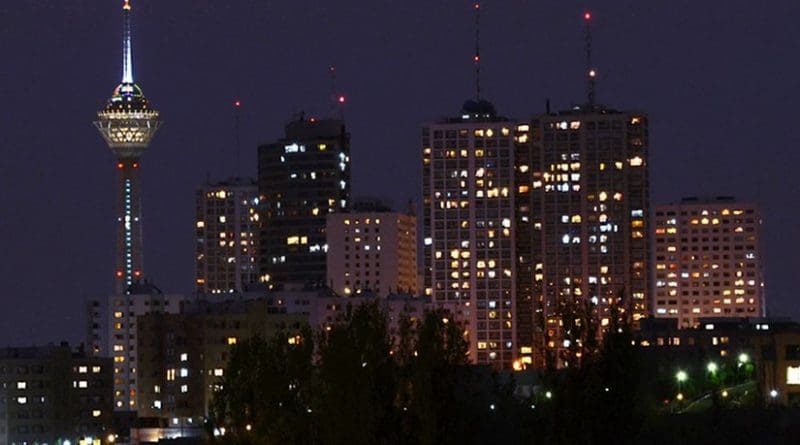Syria And The Munich Security Conference In Tehran – OpEd
Coinciding with the important, and highly fluid, military developments inside Syria, the diplomatic and political efforts to end the bloody conflict continue and include an important gathering in Tehran on October 17th, co-hosted by a Tehran think tank affiliated with the foreign ministry and the Munich Security Conference (MSC). Considered an important forum for discussion of global security issues, MSC’s Tehran gathering features some 60 representatives including the German, Iraqi, nad Afghan foreign ministers, UN representatives, European lawmakers and officials, as well as governmental representatives from various Arab states.
According to a press release, the MSC Chairman Wolfgang Ischinger has stated that “in light of the recent agreement on the nuclear dispute, now is precisely the time to find out whether and how Iran and the West can cooperate more closely on other issues as well. We need to discuss possible joint approaches to dealing with the various regional crises, particularly in Syria, with Iranian decision-makers as well.”
Clearly, reaching out to Iran on Syria and other regional crises is a prudent step by the West, given Iran’s regional clout and geostrategic position, particularly by the refugee-hit Europeans who can no longer afford to de-prioritize the Syrian crisis. Compared to the US, the European reaction to the Russian military action in Syria has been more nuanced, given Moscow’s own diplomatic effort to portray it as a “common good” against the scourge of terrorism, thus prompting calls, e.g., by the German foreign ministerSteinmeir for a new diplomatic initiative based on an extensive international contact group for Syria in order to reach a political solution in Syria.
But, while the Europeans are eager to telescope the recent nuclear agreement to broader non-nuclear issues such as regional security, the US has been sending contradictory signals, particularly since the troika of Iran, Russia, and Iraq on “intelligence-sharing” vis-a-vis the ISIS terrorist took shape last month. That agreement and the subsequent Russian and Iranian military moves in Syria have somewhat rattled Washington and its regional allies, whose proxies in Syria now face the formidable weight of the Russian military superpower bearing down on them with the help of assortment of cruise missiles and aerial bombardments.
More than two weeks after the onset of Russia’s military campaign in Syria, it is becoming increasingly obvious that instead of triggering a “WWII-style” alliance against terrorism, as hoped for by Russia’s President Vladimir Putin in his recent UN speech, a new cold war featuring opposing camps clamoring for zones of influence in the fragmented Arab country is a more likely possibility.
Indeed, this much can be garnered from the stern warning to Russia by the US Secretary of Defense, Ashton Carter, who has lambasted the Russian airstrikes in Syria as a “misguided strategy” that will “inflame and prolong” the civil war there, vowing that the US would take “all necessary steps” to counter Moscow. US has stepped up the delivery of arms to the Syrian rebels and its key regional allies Turkey and Saudi Arabia have strongly denounced Russia’s moves in Syria, which are widely interpreted in terms of bolstering the embattled government of Bashar al-Assad, whose forces are now on the offensive to regain lost territories for the first time in months, with much help by Iran’s revolutionary guards and Lebanon’s Hizbollah fighters.
From Tehran’s vantage, however, the political solution in Syria requires a substantial empowerment of Damascus and the de-fanging of the armed opposition, which has made impressive gains throughout 2015. The latter’s ‘reversal of fortunes’ due to the combined air and ground operations involving Russian, Iranian, Iraqi, and Lebanese forces is now an imminent and distinct “game-changer” possibility that, in turn, raises the importance of West’s bid to reach out to Tehran.
With both Syria and Lebanon giving “strategic depth” to Iran, Tehran is now poised to commit ground forces to assist the Syrian government, no matter what the costs, which can be quite exorbitant in light of the recent death of several top military commanders in the Syrian theater. These losses have brought to home in Iran the sad realization that they country is at war with the Iranophobic Sunni Jihadists, who have a crusade mentality vis-a-vis the Shiites led by Iran.
Cognizant of President Obama’s UN speech, where he raised the possibility of cooperation with Iran on Syria, Iran’s officials are still hopeful that their Syria diplomacy reflected in a 4-point peace plan that calls for a government of national unity in Syria and the return of Syrian refugees following a cease-fire can still gain traction with the West despite the changing military dynamic in Syria wrought by the Russian intervention.
On the whole, Iran’s approach is one of a ‘non-zero-sum’ game in Syria, that is, one that does not entail relying on one power, namely Russia, to the complete exclusion of other powers.
This is precisely why the Munich Security Conference in Tehran is important to showcase Iran’s commitment and active pursuit of a viable political solution on Syria that embraces regional cooperation and input. There is, after all, the danger of a Syrian quagmire that could last several more years and drain the resources of both Iran and Russia, whose other common denominator is that both are slapped with Western sanctions.
According to some Tehran pundits, Iran and Iraq have formed a “coalition” with Russia against terrorism in Syria, which is somewhat different from, and less secure, than an outright alliance. Post-revolutionary Iran has been a steadfast defender of ‘neither west, nor east’ foreign policy orientation, which is precisely why the current bandwagoining with Russia in Syria is dictated by the realistic contingencies of the Syrian war. The Munich Security Conference is, however, an important step to harmonize Iran’s and Europe’s views on Syria, as a sine qua non for a regional and international new initiative to bring about a peaceful Syria.

